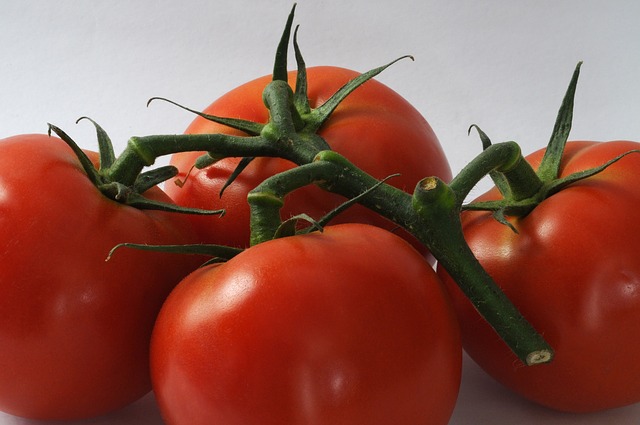June 23, 2017
UAE-based agtech enabled arid climate agribusiness Pure Harvest Smart Farms (Pure Harvest) announced it has raised over 60 percent of a $4.5 million seed round and has made appointments to its advisory board.
Co-founded by Silicon Valley private equity investor Sky Kurtz and his Emirati business partner Mahmound Adi, and backed by Abu Dhabi-based Shorooq Investments, Pure Harvest raised $1.1 million in October of last year to begin building up to the launch of the Emirate’s first high-tech, commercial scale greenhouse operation for the year-round production of tomatoes.
Concurrent with its latest fundraising, Pure Harvest also announced new appointments to its advisory board, which Gulf Business reports now includes:
Dr. Jouke Campen – international project manager, Wageningen University
Christopher Gillitt – agricultural economist, Palladium Consulting
Janell Holas – vice president of marketing, Henkel
Anil Mehta – general counsel, Al Qattara Investments and advisor to Careem
Peter Satow – founder and CEO, PESA Advanced Hydroponics;
David Scott – president of the Investment Diplomacy Group (IDG) and executive director of economic affairs at the Executive Affairs Authority
Sjef Smits – production manager, Agro-Invest.
“We are honored to welcome such experienced, accomplished, and diverse professionals to the Pure Harvest team. As Pure Harvest leverages controlled-environment agriculture technologies to transform food production in the import-dependent and water scarce Arab Gulf region, it is more important than ever to have leaders of this high caliber from business, public policy, and agricultural disciplines to support our mission,” said Sky Kurtz, cofounder and CEO of Pure Harvest.
With help from its board, Pure Harvest plans to grow high-value crops using its proprietary semi-closed climate controlled production system that is engineered to produce foods in the arid GCC region. Optimal indoor conditions will be consistently maintained using pressure climate control technology and hybrid evaporative and mechanical cooling systems, while a “semi-closed controlled growing system” has been implemented to combat the challenges inherent in attempting to grow produce in the GCC region.
“Ultra-modern hydroponics – called Controlled Environment Agriculture or Precision Agriculture – has vast potential to revolutionize the agriculture sector in the region and could, at scale, have a meaningful impact on the regional economies as they aspire to diversify away from oil,” said Adi in a statement announcing Pure Harvest’s $1.1 raising late last year. “I believe that we can create a lasting impact in the region and pave the way toward sustainability.”
Gaining Traction
Although advances in technology resulted in an increase in food production in the MENA region in the 1990s, the region is still expected to see a food deficit of between 50 million tons and 90 million tons by 2020. As a result, indoor vegetable production in the Middle East region has been gaining traction with both investors and startups.
Not only can such high-tech systems reverse the water withdrawal connected with traditional agricultural production, it can also create possible export opportunities for the region while adding a measure of diversification to widely oil-dependent economies.
“There is a growing realization among policy-makers in the GCC region that the current over-reliance on imported food represents a pressing economic and security vulnerability, particularly when projected into the context of a post-oil economy,” David Scott, president of the Investment Diplomacy Group, a boutique strategy consultancy, and the executive director of Economic Affairs at the Executive Affairs Authority, told CPI Financial.
Pure Harvest is not alone in its goal of bringing hydroponics to the GCC. Pegasus Agriculture is also a key player in the space. With a head office in Dubai, Pegasus Agriculture sees hydroponics as a key tool to ensuring food security in the face of climate change, sprawling population, and the loss of arable land. Using premium seeds sourced from Europe, the sharia-compliant company plants in a bed of rock wool, using 90 percent less water, zero soil, and producing fresh produce 300 percent quicker on 75 percent less space than traditional agricultural production, according to its website.
The group’s cornerstone project was launched in 2013 through a partnership with Gardinia Hydroponic Farming (GHF) in Oman, and in April 2014 the group announced its expansion into Saudi Arabia – a country that imports 95 percent of its fresh fruits and vegetables, with a 20,000 square meter hydroponic farm that is designed to produce 1,400 tons of produce per hectare.
-Lynda Kiernan
Lynda Kiernan is Editor with GAI Media and daily contributor to GAI News. If you would like to submit a contribution for consideration, please contact Ms. Kiernan at lkiernan@globalaginvesting.com

Let GAI News inform your engagement in the agriculture sector.
GAI News provides crucial and timely news and insight to help you stay ahead of critical agricultural trends through free delivery of two weekly newsletters, Ag Investing Weekly and AgTech Intel.




